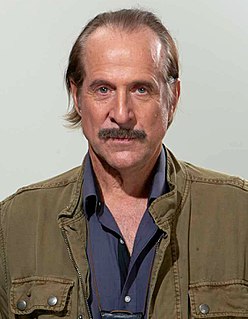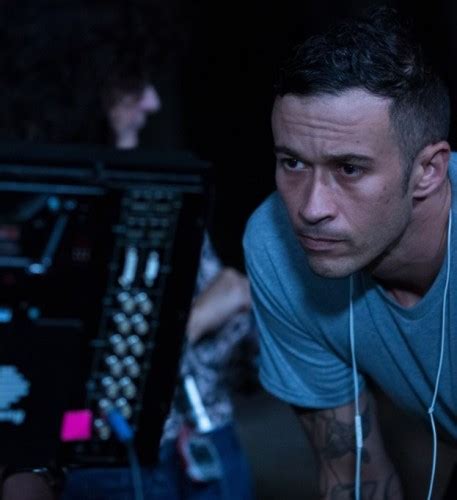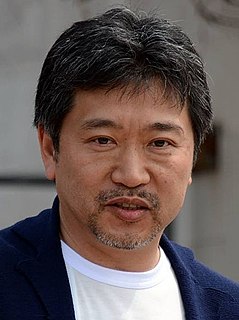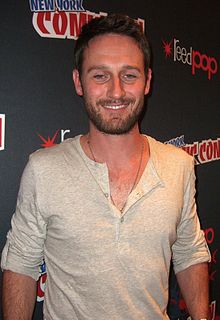Top 401 Theaters Quotes & Sayings - Page 7
Explore popular Theaters quotes.
Last updated on December 22, 2024.
I never want movie theaters go away. It is the greatest time out on the town. You go out, it's a great place to go, great location, great hang, great date, good place to be with friends. But as an actor who works hard at making movies, I am glad that no matter what people can see your movie on. It's hard to keep a theater for long time; there are so many movies, so when you leave a theater, you're just glad there's a life for your movie.
When I go biking, I repeat a mantra of the day's sensations: bright sun, blue sky, warm breeze, blue jay's call, ice melting and so on. This helps me transcend the traffic, ignore the clamorings of work, leave all the mind theaters behind and focus on nature instead. I still must abide by the rules of the road, of biking, of gravity. But I am mentally far away from civilization. The world is breaking someone else's heart.
…. Query: How contrive not to waste one's time? Answer: By being fully aware of it all the while. Ways in which this can be done: By spending one's days on an uneasy chair in a dentist's waiting-room; by remaining on one's balcony all of a Sunday afternoon; by listening to lectures in a language on doesn't know; by traveling by the longest and least-convenient train routes, and of course standing all the way; by lining up at the box-office of theaters and then not buying a seat; and so forth.
The most obvious and yet the oldest and most stubborn error on which the appeal of inflation rests is that of confusing ‘money’ with ‘wealth’…Real wealth, of course, consists in what is produced and consumed: the food we eat, the clothes we wear, the houses we live in. It is railways and roads and motor cars; ships and planes and factories; schools and churches and theaters; pianos, paintings and books. Yet so powerful is the verbal ambiguity that confuses money with wealth, that even those who at times recognize the confusion will slide back into it in the course of their reasoning.
Ever since I was a child, I always had insecurity or suspicions about my own personal identity. That's why I started going to a lot of movie theaters, because I felt more comfortable there than at school. Now, the search for a personal identity is becoming a common topic for young Japanese people, and it's a big theme in their own lives. But it's been a theme in my life, as well, ever since I was young.
I did community theater and kids programs at professional theaters and plays at school and voice lessons for seven years. I stopped because it was so time-consuming. But then I realized that I had access to this world where I could go on auditions. And there wasn't too much of an identity crisis when I started acting professionally because I had been acting longer than I had been writing. It didn't feel new.
I'm in the film industry, and I very seldom go to the theater now. It could be work, not being in New York, that sort thing - because in New York, you do go to theaters; you can walk to a theater and then walk to a restaurant. But in places you have to drive out to the cineplex to see a movie, it's starting not to be worth it anymore. It's like the days when you went to get a book at the public library. You don't have to do that anymore. You just go on your iPad and all of a sudden you're reading The Duchess of Malfi.
I think in the modern world we really need to have movie theaters or places we can go in and rejuvenate ourselves. I think we'll have less problems with our souls and our health. I do that in my life, and I feel healthy and happy. I need those hours in the darkness where I used to spend time as a kid, sitting in a little closet in the darkness, listening to AM radio, having glowing paint that I illuminated, just sitting there, dreaming about anything, not being disturbed for an hour or two, just alone in the dark. I'm still that little boy in my brain.
People inside the theaters usually, not 100 percent but most of them, enjoy the movie. Usually they come with a small negative view. In a way, they're prepared to get bored because it's silent and because it's black and white. So they are much more pleased to be entertained in a way. They're very happy when they go out. This was my job. For the other ones, I can do nothing except screen the movie and hope that they will say to their friends that it's not so [bad].
I would love to be able to play anywhere, but to me the sweet spot is clubs and theaters, just because I feel like you lean in to tell a joke. You don't back up. Comedy lives in that area. I've played amphitheaters, big clubs, and pool halls, and the most fun rooms hold anywhere from 500 to 2,000 people. That intimacy is where comedy really lives.
Though films become more daring sexually, they are probably less sexy than they ever were. There haven't been any convincing love scenes or romances in the movies in a while. (Nobody even seems to neck in theaters any more.) ... when the mechanics and sadism quotients go up, the movie love interest goes dead, and the film just lies there, giving a certain amount of offense.
There's never been a film with Dr. Martin Luther King, Jr. at the center released in theaters. Ever! One does not exist. You've only seen tele-films and stage plays about him. Yet, we have big screens biopics about all kinds of people. So, I think it's only right that there be a full-length feature about Dr. King. I don't think there could be enough of them, but there should be at least one. So, here it is!
I was seduced by the nouvelle vague, because it was really reinventing everything. And the Italian cinema that one would see in the theaters in the late '50s, early '60s was Italian comedy, Italian style, which, to me, was like the end of neo-realism. I think cinema all over the world was influenced by it, which was Italy finding its freedom at the end of fascism, the end of the Nazi invasion. It was a kind of incredible energy. Then, late '50s, early '60s, the neo-realism lost its great energy and became comedy.
It's not as though there aren't many, many art works and many other cultures, but there was something special about the civic nature of the Greek theater. All the citizens stopped working. They came into these theaters. It wasn't like a Broadway theater where you sit in the dark and you expect to be passively entertained. You're in this theater, amphitheater, in bright sunlight looking at your fellow citizens, recognizing their faces, and thinking with them about the future of your city. I think very few cultures have had a theatrical tradition that is quite so civic.
When I was growing up, all the films about teenagers were played by Tony Curtis or John Cassavetes when they were 27, 28 years old. We would see these teenage movies in the theaters and I would say, "They don't look like they're my age at all." So I wanted to make a movie that was real and I wanted to make a movie that wasn't about me.
Everybody's been decrying the death of movie theaters for decades and, you know, people are still going to the movies in droves. It's gone down, but it hasn't gone down that much. I think the biggest change has been the emergence of cable and streaming on television. That has really had a dramatic effect, and I think it's a positive one. I think there's really good work going on there, and as movies stratify to being these gigantic tentpole movies, and small movies, I think it gives another outlet for character-driven material.
Definitely my generation and beyond grew up in theaters and when you make a film you think of the theatrical experience. You think of that big screen in the darkened theater with a lot of people, so that's always the thought behind it. If that's the case, it's nice if that's available. That's great, but I don't really mind if they're watching films on a plane. I don't mind. Anybody who just wants to watch a movie, I can't complain. If that's the way they're going to watch them, that's the way they watch them. Who am I to judge?
We all know that men in moderate circumstances can have just as comfortable houses as the richest, just as comfortable clothing, just as good food. They can see just as fine paintings, just as marvelous statues, and they can hear just as good music. They can attend the same theaters and the same operas. They can enjoy the same sunshine, and above all, can love and be loved just as well as kings and millionaires.
In Brazil, there is a fear and a denial of our past. Downtown Rio used to display the history of colonialism in Brazil. They had beautiful buildings and theaters, and there was a bakery that was threatened to be demolished, but people insisted against it. They laid down in front of it and said, "You're going to have to go over my body to destroy it." It frustrates me when I see people on Facebook posing in front of old buildings while on vacation, because they could've posed in front of equally beautiful buildings at home in Rio.
For early plays of mine, I started with character. But I think that's because I hadn't been in theaters; I hadn't worked that much. I'm very interested in character, obviously, but once I started having my plays produced, I became so fascinated by the theatrical experiment and the weirdness of theatrical space, so now all my plays start with space and stage picture and setting - or container is maybe the better way to put it.
When I was a teenager and all these shows were on I was in that business, so I knew a lot of people in the theaters and I saw many of the great shows many times. I would go in and stand in the back - they would let me in, they knew me. I saw Fiddler on the Roof, A Funny Thing Happened on the Way to the Forum, Gypsy, and Funny Girl many times just standing in the back.
The freedoms we have in Russia are just leftovers. Freedom of travel, which was completely nonexistent in the Soviet Union; artistic freedom - so far, that's doing fine too, virtually everything can be published. Although with some books that are too edgy politically, or are especially undesirable, the authors are already running into difficulties. Theaters that produce provocative plays, or clubs that host undesirable events often find themselves on the receiving end of fire safety inspections and fines.
It is naive to believe that a steady diet of blatant immorality, played out nightly in our living rooms, has no effect on people. I am always curious when individuals insist that what they watch on television or in movie theaters doesn't affect them. ... Are we really to believe that hours, leading to years, of television viewing will not affect attitudes about everything from family life to appropriate sexual relations?
I was interning at a children's theater group in Kentucky - that was my first job out of college. I had jumped around a couple of regional theaters, and I was about to go back to Maine to work at a summer Shakespeare theater there. I didn't want to just jump around the country from gig to gig. I really wanted to go to a city and get involved in a theater scene and a theater community.
You can point to a lot of women showrunners that have had long and successful careers. In terms of the kinds of movies that women can get made, as long as the business operates under this model of the first-weekend [box office] focus, with huge movies aimed at super-young audiences, it will be really tough for women to do something that really changes the landscape. Because honestly, until they figure out how to get grown women into the theaters on the first weekend, it won't change.
You can't make theater happen without actors. The actor is the central ingredient in making theater happen. Audiences may come to theaters to see the work of stage managers, directors and producers, but the only people who can communicate theater magic to audiences, through ideas and emotions, are the actors. They are the only ones who can communicate this by themselves, and if necessary, they can get along without you. But you can't make theater without the actor.
I lived right on the borderline of a black neighborhood. So I could go into the black area and then there'd be these ghetto theaters that you could actually see the new kung fu movie or the new blaxploitation movie or the new horror film or whatever. And then there was also, if you went just a little further away, there was actually a little art house cinema. So I could actually see, you know, French movies or Italian movies, when they came out.
Even though it took forever to release a movie, and even though it's a small indie release, the fact that in five years someone will be skipping through Netflix, or Amazon, or whatever and say, "Wow, that was a really cool movie. That was a really great story. Or I was really creeped out, or intrigued by that." You almost kind of forget what it took to get there, or was it in the theaters or not. So that's kind of exciting as a filmmaker. That it doesn't really matter as much the release platform, as much as how can I see it?
In my life, I didn't get into comedy to be - I had no business model. All I wanted to do was, basically, finish becoming myself. And you stand in front of people and be seen and heard in this format. I thought it was the most practical format for me to express whatever it was I was going through. Whatever my ideas were in my evolving philosophy about life. I obviously don't sell out theaters. I'm not a household name. I'm not incredibly consistent in terms of doing the same act over and over again, and I'm definitely working out a lot of my existential issues onstage.
I think it was going to be hard to work with Russians on Syria. There is some potential overlap between the U.S. and Russia in that the Russians don't want to see the Syria situation unravel to a point where they have to escalate their own involvement. But at the moment, I don't see the U.S. and Russia on the same page in Syria. Russia seems much more interested in consolidating government control over liberated areas. It seems to me that the U.S. and Russia are proving they can disagree for independent reasons in any number of theaters.
Church wealth are moving into everything-gas stations, banks, television stations, supermarket chains, hotels, steel mills, resort areas, farms, wine factories, warehouses, bottling works, printing plants, schools, theaters-everything you could conceivably think of that has nothing to do with religion, they are moving into big. They're even coming in as stockholders in the big oil companies, and the Bank of America is almost entirely owned by the Catholic Church.
Then you have these people in the movie theaters that talk the whole time during the movie. You ever go with somebody like that to a movie but you don't realize until you get there that you're with somebody like that? Brand new movie. First day it's open. You're there together and the entire time they're sitting there: Where's she going? Why'd he do that? Is he mad at her? I don't know, let's watch and find out together shall we? You know who you are. You're denying it right now: I do not do that. Why is she saying that?. What's she gonna say next?
When I started I had no knowledge of films whatsoever. I was an engineering major at Stanford. And I found out as a senior that they had two film critics on the Stanford Daily, and they got free passes to all the theaters in Palo Alto. So I thought, I'll do that, and I became a film critic. And then I became interested in films. But I had no time to study anything in that area because I was a senior, just finishing up as engineering.
In the neighborhood around Waseda, there were all these movie theaters, so every morning I left the house and watched movies instead of going to class. The experience of encountering films then is one of my greatest memories. Before that I'd never paid any attention to directors, but there I was taking a crash course in Ozu, Kurosawa, Naruse, Truffaut, Renoir, Fellini. Because I've always been naturally a more introspective person, I was more interested in becoming a screenwriter than a director.
Give me the old familiar walk, postoffice and all, with this ever new self, with this infinite expectation and faith, which does not know when it is beaten. We'll go nutting once more. We'll pluck the nut of the world, and crack it in the winter evenings. Theaters and all other sightseeing are puppet-shows in comparison. I will take another walk to the Cliff, another row on the river, another skate on the meadow, be out in the first snow, and associate with the winter birds. Here I am at home. In the bare and bleached crust of the earth I recognize my friend.
I don't think that people are necessarily going to films simply because they were adapted from comics, though I could be wrong. Comics aren't really misunderstood either, they've just been mostly silly for the past century, and those genre-centered stories have found their way into the movie theaters over the past couple of decades because a generation who grew up reading them has, well, grown up.
Last House offended a lot of people. The results in the theaters, even in Boston, reminded me a bit of things from when I was studying theater of the absurd, and the rise and the appearance of Ionesco plays, and things like that. Thinking, "My God, people actually are getting into fistfights. People are having heart attacks. People are actually trying to get into the projection booth to destroy the print."
When I started acting in the film industry when I was 16 years old, in 1980, I was going to all the revival theaters in Los Angeles. They were playing mostly films from the '60s and '70s, some from the early '20s and '30s, before that Hays commission. Those films did question things a lot, and there definitely was a switch in 1934. You can see very distinctly in 1934, it's harder to understand what the real culture was. Films made before 1934, you can really kind of see the racism, sexism, drug use, etc. that was going on at that time. And then it was all stopped.
Parallel to the training of the body a struggle against the poisoning of the soul must begin. Our whole public life today is like a hothouse for sexual ideas and simulations. Just look at the bill of fare served up in our movies, vaudeville and theaters, and you will hardly be able to deny that this is not the right kind of food, particularly for the youth. Theater, art, literature, cinema, press, posters, and window displays must be cleansed of all manifestations of our rotting world and placed in the service of a moral, political and cultural idea.
The idea of safety had shrunk into particles - one snug moment, then the next. Meanwhile, the brain piped fugues of worry and staged mind-theaters full of tragedies and triumphs, because unfortunately, the fear of death does wonders to focus the mind, inspire creativity, and heightens the senses. Trusting one's hunches only seems gamble if one has time for seem; otherwise the brain goes on autopilot and trades the elite craft of analysis for the best rapid insights that float up from its danger files and ancient bag of tricks.







































